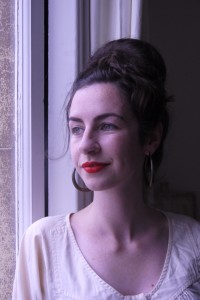meet the judges: jessica friedmann
Over the next week or so, Lip will be running a special set of interviews with the judges of the 2014 Rachel Funari Prize for Fiction. These lovely ladies are Jessica Friedmann, Melanie Tait and Estelle Tang. First up, let’s meet Jessica Friedmann.
Jessica Friedmann is a Melbourne-based writer and editor, who has formerly worked at Farrago, Going Down Swinging, and Dumbo Feather. Her fiction and literary non-fiction have appeared in The Age, Is Not, Voiceworks, Smith Journal, and others.
What is in store for your 2014?
I’ve just moved into a tiny apartment with my husband and young son, so finding a cheap studio space and making dedicated time in my week to work are my main goals for 2014. The last few years have been a bit topsy-turvy, so it will be good to get into a decent writing rhythm again. I’m also working part-time at Australian Poetry, overseeing the production of the Australian Poetry Journal (amongst other things), so I’m looking forward to reading heaps of excellent poems, reviews, and essays about poetics and life.
Many of our competition entrants are aspiring writers. Many are also women. As a successful female writer, are there any experiences from your career journey that you would like to share?
The most vital questions to do with women and writing — I think anyway — Roland Barthes already encapsulated in ‘Novels and Children‘. Fifty years after its publication, I still find it perfectly, wryly on the money. I don’t know that I can add much to his essay, only to say that during and after my pregnancy, I lost a lot of vocabulary; I wrote about it here, and even getting 800 words down exhausted me creatively for a while. The amount of mental energy early parenting takes is astounding. If you are to fall into the template of novels and children, write your novel before you have a baby.
What does “feminism” mean to you?
Well, the right to vote is kind of nice. I liked being allowed to go to university. I’m pretty chuffed that I got to plan my pregnancy using birth control, and I certainly enjoyed marrying for love. Honestly, feminism is such a basic tenet of my life that it’s impossible to imagine my life without it. I think as a movement it’s had its ups and downs, but I would never deny the need for a system that addresses some of the most basic — and insidious — inequalities in society.
The Rachel Funari Prize for Fiction calls for a focus on women’s stories. What’s your view on the current state of women’s stories in the media and publishing world?
It’s such a complex question. I don’t think there really is a coherent ‘media and publishing world’ — there are the big players, the indies, bloggers, radio hosts, ‘zine-makers etc. all with very different perspectives on the worth of telling women’s stories. Broadly, though, there are trends in publishing, and women still aren’t being commissioned as much as men, which puts a dint in the way in which stories are told. But things seem to be looking up. I think the Stella Prize has a lot to take credit for, in terms of shaking up the boys’ club, and I’m glad to see more and more novels about women’s experiences being moved out of the chick lit ghetto and into the realm of general or literary fiction. I look forward to the day when I don’t see a pair of illustrated feet and shoes anywhere in the bloody bookshop.
When it comes to judging the competition, what will you be looking for?
Freshness, poetry, wit; I want to be told a story I haven’t heard before, or one that I haven’t heard in this way before. Mostly I want to be assured, by the confidence of the writing and maturity of the language, that the story I am being told is an honest one. Because that’s what I look for in fiction, most of all. Truth.
Do you have a story hidden under your pillow? Do you have what it takes to write the winning words? Find out more about the Rachel Funari Prize for Fiction here.


